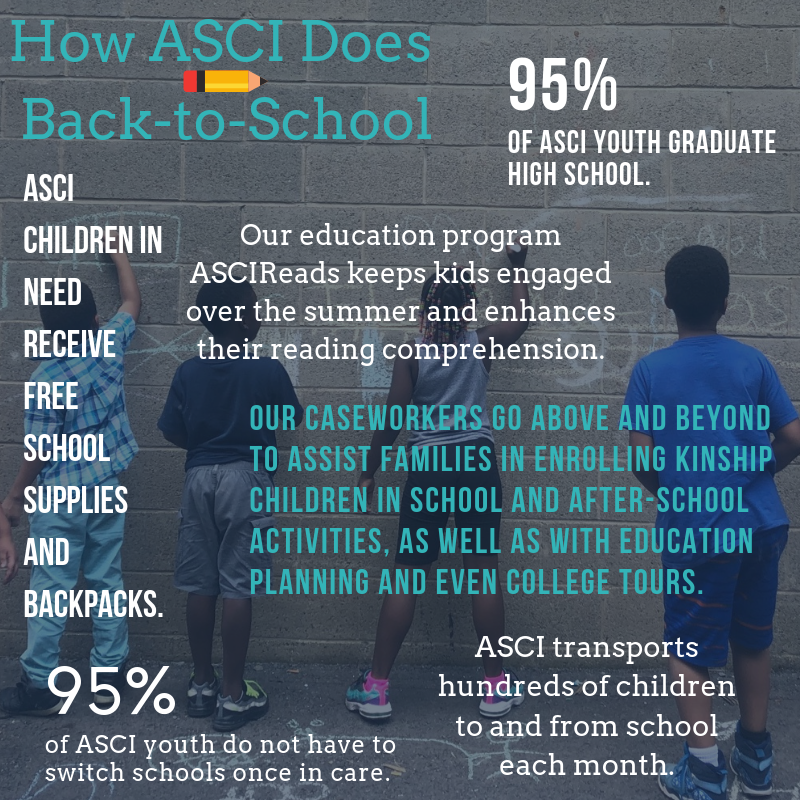Blog
Back-to-School Tips for Kinship Caregivers
Whether you’re a caregiver, parent, caseworker or community supporter, ASCI’s education liaison Dr. Christine White-Taylor has provided the following advice to help you ensure successful educational experiences for kinship children in the new school year.
1. Know Your School District
Know the district’s board members and superintendent and when they have their meetings. They allocate tax dollars to worthy projects within the school district, as well as lobby for support from the state legislature. Getting to know them and attending/participating in meetings is in your best interest.
2. Get to Know the School Your Child Attends
Meet with the principal first, then the child’s teachers. Remember, for all it’s worth, the teachers run the building. Make sure you get to know them and encourage them to contact you with both positive reports and issues of concern.
Each district has a code of conduct, which dictates how everyone involved with the district’s schools should conduct themselves. It may also contain the district’s disciplinary structure. Familiarize yourself with this document, as it should detail specific infractions and—should a child in your care misbehave—provide a range of penalties based on the severity.

Pittsburgh and Philadelphia are Pennsylvania’s largest school districts. Use them as a guide to find out about other districts in the state.
Each school usually has a student handbook detailing school policies and requirements of all students. This may include a dress code, school traditions, etc. Learn the school’s procedures for getting assistance should your child need any educational supports.
3. Ask Questions When You Have Them
Does the school have after-school activities? What about sports or interest groups/teams? Is there tutoring, if needed? If you have questions and have a teacher or school administrator in front of you, ASK.
4. Be Supportive of the School’s Outreach Efforts
Join associations. Join the PTA. Participate in and/or contribute to a Parent School Community Council. Attend community engagement events.
5. Get Ready for the Beginning of School
Have your child practice going to bed early to get ready for school days. Stick to a bedtime that will ensure your child is well-rested. Also, reinforce the importance of completing homework. Start practicing good habits the week before school starts!
6. If Your Child Is Struggling
Call the teacher and the principal to ask for help. Check for tutoring assistance at local universities, colleges and public libraries. For example, Carnegie Library of Pittsburgh offers tutoring services throughout the school year.
Also consider attending subject-help nights at school, where your child’s teacher will help you be the tutor.
7. Take Advantage of Skill-Building Youth Programs
For example, ASCI’s youth programming provides a very good “real life” approach that can be applied to a child’s academic career and overall school experience. Our kinship families should check out programs like Y.E.S. (Youth Empowerment Services) and Boys2Men.
8. What You Can Do at Home
Create opportunities to talk to your student about what each day is like at school. Cut off the electronic games, cable TV and cellphones. Be involved simply by listening. This is how you will find out about your child’s relationships with peers, problems they’re having and apprehensions they may have about school.